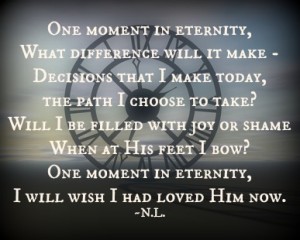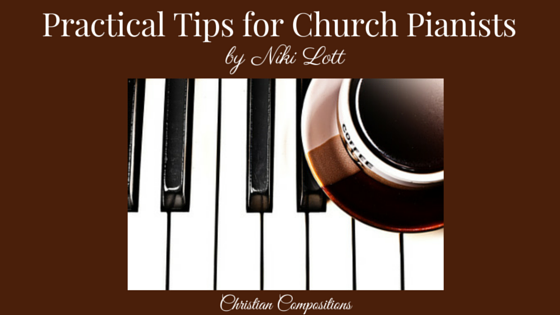I love a good cup of coffee…almost as much as I love music! If you’re not a coffee drinker, please don’t stop reading! If you are a coffee drinker, I’m going to share one more relatively unimportant fact about myself. I don’t know about you, but I’m not a big fan of decaf coffee. I don’t like the taste, and I also don’t like the lack of caffeine. Granted, I probably don’t need as much caffeine as I consume, but I do like the boost of energy it gives me, especially in the morning.
However, the truth is, one cannot live on caffeine alone. While it will give you a temporary “pep in your step”, it fades after awhile. There is really no nutritional value in coffee (it really hurts me to say that!). Thankfully, there aren’t any calories either (unless you load it with cream and sugar).
We need nutrition if we want more than just pep. It’s okay to start the morning with a cup of coffee, but you’ll feel much better throughout the day if you follow that coffee with a healthy breakfast (not the bagel or donut that tastes so good with that mug of hot stuff). We need good, solid food that will provide our bodies with the nutrients we need to function. If we are going to have the strength for the day, we need to make sure that we’re feeding our bodies the proper things. However, many times, instead of eating something nutritious when we begin to feel weak or tired, we just go back to the coffeepot for another temporary jolt of energy.
Another admission I don’t like to make is that coffee can be addictive (ouch!). It doesn’t have to be, but it can be. If we are dependent on it, instead of something more healthy, then we need to be careful and maybe think about how wise (or unwise) this is.
I would like to apply these thoughts to the music we ingest. Music is one of my favorite things in the world. I love to listen to it, and I love to participate in it. I love to sing and play the piano, but I have learned that music is an amazing force. As a Christian, I need to examine the music I am listening to. First and foremost, I must ask myself if it is pleasing to Christ in every aspect. I think, with this in my mind, we could ask ourselves if we are listening to the music we listen to because we desire pep or power?
Many people, even in Christian circles, are feeding their minds and hearts with music that may give them a temporary “boost” of energy or emotion, but has no spiritual nutritional value. In fact, it may even be detrimental to their walk with the Lord. However, instead of choosing to feed on something more healthy and sustaining, they just “drink more” to get that next jolt.
God desires that we speak to ourselves “in psalms and hymns and spiritual songs, singing and making melody in your hearts to the Lord.” (Eph. 5:19). Godly music will sustain us spiritually throughout our days, and even through the night (Ps. 77:6; Job 35:10).
So let’s examine our music. Is it just for “pep” or will it give us spiritual power?
Examine Its Appeal
Does the music you’re listening to primarily appeal to your flesh or to your spirit? Does it make you want to dance or does it make you feel more devoted to God? Does it appeal solely to you on an emotional level, or does it encourage you to take spiritual action? Does it appeal to you solely on a physical level, because you like the way it sounds, or does it feed your spirit? Can you sing this music “in your hearts to the Lord?” If my music is appealing to the sensual rather than the spiritual, I need to change my heart, and then change my music.
Examine Its Associations
What kind of people (in general) listen to the music you enjoy? Is it the kind of music you are comfortable talking about at church? What about to your pastor? What about to someone who you consider to be a spiritual role model? Most importantly, what about Christ? Would you change your radio station, your ipod playlist, or your CD if Jesus got in your car, or put on your headphones?
What kind of people sing the music you’re listening to? Are they associated with the world or with the Lord? What kind of people are associated with the genre of music you enjoy? Are they godly people? Let me say here that much of so-called Christian music is far more worldly in its associations than it is with Christ. If it sounds like the world, and looks like the world, it is the world.
Examine Its Attitude
All music has an “attitude” and will compel an attitude in the listener, whether the listener is conscious of that or not. Some music is very calming, while other music is energizing. Some music is very depressing, while other music may be uplifting. Music can have attitudes and overtones of rebellion, lust, anger, depression, or it can have attitudes of love, joy, peace, and worship. It should not have both at the same time. That is what much of contemporary Christian music pretends to do. They claim to have spiritual lyrics with carnal music. The messages are conflicting and confusing. “God is not the author of confusion.…” (I Cor. 14:33). If the words of the music are telling me to be surrendered to God, and the music is telling me to serve my flesh, there is a battle and conflict in every beat of that song. There is nothing spiritual about that, no matter what the label may say.
What attitudes does your music produce in you? Does it make you desire to do more to Christ? Does it make you honor Him? Does it draw your mind and your heart to reverence His holiness? Does it challenge you to live a godly life? Does it encourage you to go out and serve Him with all your heart?
Examine Its Addiction
I mentioned that coffee can be addictive. Music is one of the most addictive things I know of. If you have always listened to a certain type of music, particularly worldly music, the prospect of not listening to it anymore can make you feel absolutely hostile. I’ve heard people say, “I just can’t live without my music.” Isn’t it amazing that it can have that kind of power over us?
Let me ask you, what kind of music are you “into”? Could you stop listening to it tomorrow? Have you given your music to the Lord? I think that an interesting verse regarding this aspect is found in I Corinthians 6:12, “All things are lawful unto me, but all things are not expedient: all things are lawful for me, but I will not be brought under the power of any.” This does not mean that any action or activity is permissible for me as a Christian. That is clear from the previous verses. I do believe that it means that even those things that are “lawful for me”, that are not clearly forbidden, are not to control me. We are to be under the power of the Spirit of Christ.
Examine Its Agenda
All music, good or bad, has an agenda. It has a message that it seeks to convey, and a purpose it seeks to fulfill. Even without words, music conveys messages. I already addressed that a little bit when discussing the attitude of music. If you listened to your music without the words, would someone automatically assume that it was Christian or secular?
I write music, and one of the things that I seek to do is to get my point across in a song. I start with a thought that I wish to convey. I then work to find the right words to articulate that thought in a clear way. I then seek to write music that matches the overall message of the words. Is it a meditative, contemplative song? Then I would not seek to match it with up-tempo, bright music. Is it a song of glad testimony for what God has performed in my life? Then the brighter music would suit it better. Some songs are more subtle in their message, while others are very forthright. But never forget, every song has an agenda.
Again, if the message, or agenda, of the words does not match the message of the music then its overall message is one of confusion and rebellion. The Bible says that the same fountain should not produce sweet water and bitter (Jas. 3:10-12). This is also true of our music. It should not be sending mixed messages.
What “agenda” does your music promote? Is it a godly, spiritual one, or a worldly, carnal one?
Let me conclude by saying that there is nothing wrong with music that is lively, “peppy”, or stirring. The Bible says that we are to make a joyful noise. I think of songs like “Saved,! Saved!”, “Power in the Blood”, and “Jesus Is Coming Again”. These are stirring, exciting songs. However, they are also songs with spiritual meat, and without a secular, driving beat.
The “pep” factor should also not be the sole qualification we seek in our music. Some people refuse to listen to a slower song. They don’t like “church music” because it is too slow, or too “old-fashioned”. Just as we need a balanced physical diet, we need a balanced musical diet. We need songs that encourage us, motivate us, and bring us joy. We also need songs that inspire us to be prayerful, repentant, and in awe of the majesty of God. We do not need spiritual “junk food”, music that sounds spiritual, but is really all sugar, and no substance. It is spiritual “cotton candy”. We also do not need the poison of the world’s music.
All music has power. The question should be, is it empowering my old nature or my new nature? Does my music appeal to me simply at a physical level, or does it appeal to my spirit? Is it giving me temporary “pep” or long-term “power”? How balanced is your musical diet?
(Originally posted at: http://www.coffeelotte.blogspot.com/2008/09/pep-or-power.html)





